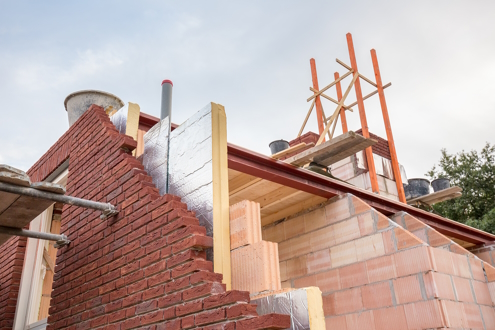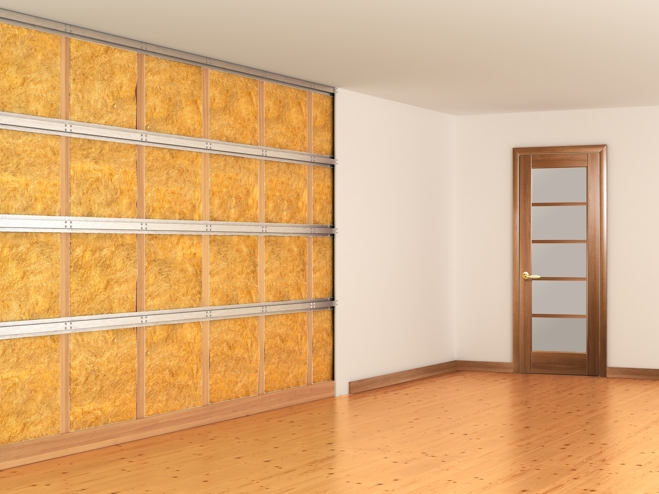FORT Fencing
Agricultural & Equine Fencing
17 April 2023

Insulation is a key component of any building’s construction, as it reduces the heat transfer between the inside and outside of a structure. By ensuring a building is fitted with the correct insulation it needs, this improves the buildings efficiency, making it cost effective and environmentally friendly. At FORT, we stock a range of products including; Loft, Cavity Wall, Acoustic (Glass & Rock), Phenolic & Polyisocyanurate. These can be found on our website at www.fort-m.com. On top of what FORT already stock, we often supply specialist products which are received in quickly from frequent deliveries from the likes of Knauf, Rockwool, Kingspan, Unilin (formerly Extratherm), IKO, Mannok, Ecotherm, Recticel & Jablite. To find out more on the types of insulation that we stock, contact our friendly sales team.
Foam
Available in two forms, those being either; rigid boards or in a spray form. To insulate walls, ceilings & floors rigid boards, which are made from either polystyrene or polyurethane, are the best solution to use. Spray foam is an expandable and flexible option, as it is applied as a liquid and hardens to a solid material it can be best used for irregular shaped areas and gaps, as it can easily fit within voids & crevices. With a higher R-value than fibreglass and cellulose, this insulation can often be a more expensive option.
Fibreglass
A popular type of insulation which is created from fine strands of glass. It’s typically installed in rolls or batts and is available in a variety of thicknesses to suit different applications. As a general-purpose option, Fibreglass insulation is a good choice due to its lower cost and simplicity to install. When installing fibreglass its vital to wear the correct protective clothing.
PIR Insulation Boards
Polyisocyanurate, commonly known as PIR, is a thermoset plastic produced as a foam. Bonded to a facing which then creates an insulation board. PIR is fabricated by being cooked under pressure in the factory and left to cool, once the process of hot and cold is complete it is then cut to size and packaged. The benefits to this type of insulation are again with its coft-effectiveness, it is also a more thermally efficient insulation. PIR insulation is typically used on flat roof applications, as it is known to have great waterproofing properties, although this is not limited to flat roofs and can be used on a wide range of applications. At FORT we hold plenty stocks of PIR, click this link to view what is currently in stock.

Acoustic Insulation
Insulation has other uses than simply insulating a room, it can also keep unwanted noise from entering your space. Whether that be footsteps from above or reducing the sound of vehicles passing by. According to the WHO, a high 40% of people aged between 12 – 35 may be exposed to unsafe sound levels from entertainment venues, as well as the typical sounds made in a city. This is why it is also important to consider Acoustic Insulation for your current project. Allowing adequate soundproof insulation within walls can protect building elements from loud noises and vibrations. At FORT, we stock Acoustic Insulation, either head to our website or get in touch with our team on 01488 505 800.
At FORT, we hold various types of insulation, if you’re planning a new project which requires either Loft, Acoustic or Cavity insulation, be sure that we can supply you with it straight from our Yard in Membury, Lambourn Woodlands. If you’re looking for specialist insulation, don’t hesitate to contact us. Our dedicated sales team are always on hand and ready to help.
Cavity Insulation
What is cavity wall insulation? Cavity insulation is named after placing insulation between the cavity of a building, the space which is between the inner and outer wall. Placing insulation in this space can offer better thermal retention ultimately saving the homeowner costs on energy bills per year. Our stocked Kingspan Kooltherm K106 cavity boards offer an advanced full-fill cavity wall insulation with a thermal conductivity of 0.019 W/mK. Being a thinner profile than some other types of cavity insulation, the Kingspan K106 keeps the same U-value as alternative products.
Phenolic Insulation
Phenolic Insulation can be used in a variety of roof, wall & floor applications meaning it can be used for a range of constructional projects. It is known for being one of the most thermally efficient types of insulation, achieving a lambda value of 0.019 W/mK across all thicknesses. To create Phenolic insulation a wet foam mix is added directly to the bottom layer of the facing, then expanding to meet the top layer to finally be cooked under pressure & cured in a second oven.
Are you looking for insulation to complete your project? Here at FORT, we have a dedicated sales team on hand to help with your queries. You can call us on 01488 505 800 or email us at office@fort-m.com. Alternatively you can find all of our stocked insulation on our website - www.fort-m.com/insulation-plastering-insulation.